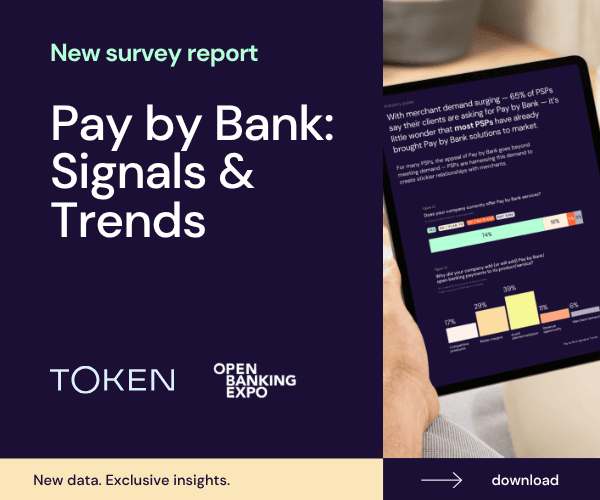As the Chancellor prepares for the Autumn Budget, ministers face a dual challenge: reigniting economic growth while delivering tangible improvements in people’s lives. That means doing more than simply pulling the traditional fiscal levers, it requires reforming the infrastructure that underpins modern markets.
Recent commentary has rightly highlighted that government cannot tax its way to prosperity – industry, innovation, and investment are the true drivers of growth. But government has a crucial role in creating the conditions for that growth, by opening markets and encouraging opportunities that unlock private sector dynamism. One such reform, with the potential to transform sectors from finance and energy to telecoms and retail, is the delivery of Smart Data.

Jonathan Ashworth, former Labour MP and advisory board member, Smart Data Group
Smart Data is not a distant aspiration. It represents a £27 billion growth opportunity for the UK economy and delivers immediate consumer benefits: better switching, lower prices, and improved product fit, all without the need to raise new taxes. With the Data (Use and Access) Act now on the statute book, the government has the legislative foundation and the powers to mandate sector-specific data-sharing schemes. What’s missing is the urgency to deliver them at pace.
The benefits are clear. In energy, Smart Data could help households switch providers seamlessly and access tailored usage insights, critical in the face of high bills and weak consumer engagement. In financial services, it can support fairer credit decisions, easier pension management, and greater financial control. In telecoms, it could tackle opaque pricing and end friction-heavy switching. And the same logic extends into retail, transport, even healthcare, unlocking new opportunities for consumers and businesses alike.
But realising these benefits requires more than a legal framework. It requires pace, trust, and coordination, qualities that the UK has sometimes struggled to maintain in digital delivery.
First, pace. The UK cannot afford to be left behind. Australia, among others, is already advancing a cross-sector Consumer Data Right. Here, businesses are ready to invest, but need clarity, not delays. Government must set out a timetable for priority schemes, such as smart finance, energy and telecoms, with clear roles, milestones, and expectations.
Second, trust. Smart Data puts more power in consumers’ hands, but that power is only meaningful if people feel confident that their data is secure and used appropriately. Robust, independent governance structures must be in place from the outset. Delivery arrangements must not only work but be seen to work in the public interest.
Third, coordination. Successful schemes won’t come from a single department or regulator. They require alignment across a complex ecosystem – industry, government, regulators, consumer groups, and technical providers. While progress is already being made by regulators and government bodies on key enablers, like consent models and trust frameworks, what’s missing is a central delivery capability: a neutral, independent body that can work across sectors, stitch these efforts together, and deliver operable, scalable schemes to market.
One example of how this could be achieved is through collaborative delivery bodies such as the Smart Data Group (SDG), formed by many of those involved in delivering Open Banking to the UK. Organisations like this can provide a cross-sector model designed to support both commercial innovation and regulatory compliance. With the right mandate, they could serve as a delivery partner for government – convening the Smart Data ecosystem, providing services, and operating schemes. Their neutrality and technical capability mean they are well placed to help ensure any future arrangements are commercially viable, interoperable, and aligned with public policy objectives.
The Financial Conduct Authority has already highlighted the importance of a ‘Future Entity’ to carry forward Open Banking: an industry-led, neutral, technically capable and trusted delivery body. The Smart Data Group is one example of a model that shares many of these characteristics, and demonstrates how such an entity could be structured to take forward both regulatory and commercial schemes. What matters most is that the UK establishes this type of delivery capability quickly, to ensure we move from policy to implementation at pace.
We should be clear: this cannot wait another Parliament. These schemes will underpin the next wave of innovation, competition, and consumer empowerment. They can lower bills, unlock market access for small firms, and enable targeted support for vulnerable groups – all without significant new public spending.
The Data Act provided the green light. Now we need to accelerate towards implementation. That starts with clear direction from government, backed by practical delivery. The Autumn Budget offers the right moment to commit, not just with rhetoric, but with concrete action: announcing the first full Smart Data scheme and creating the conditions for industry-led participation and delivery.
Get it right, and the UK can lead the world in building a Smart Data economy. One that’s fairer, faster, and fit for the future.
Jonathan Ashworth, a former Labour MP and Advisory Board Member at Smart Data Group
Smart Data Group is speaking at Open Banking Expo UK & Europe on 21-22 October at the Business Design Centre in London and is also an Industry Partner of the Expo. Find out more and register for your ticket here.





